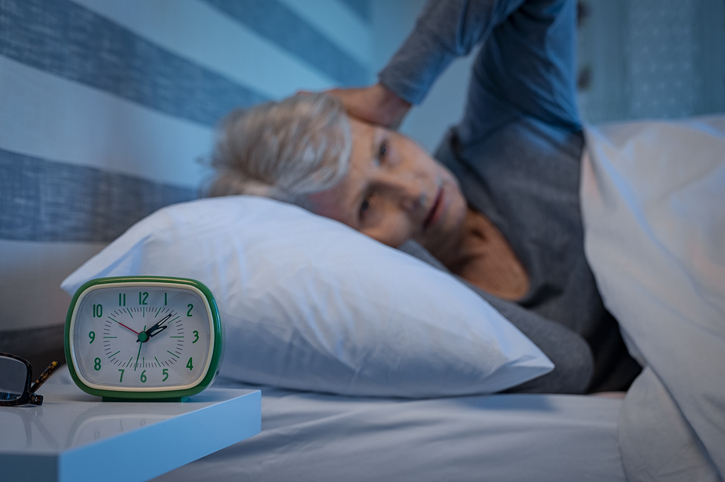
Senior insomnia is common, but there are a number of strategies that can help.
Counting sheep. Tossing and turning. Staring at the clock. If this represents a common evening for your elderly loved one, understand that he or she is in good company. While older individuals require around 7 – 9 hours of sleep each night, upwards of 50 percent of all adults over age 65 report challenges with falling and/or staying asleep. Yet it’s important to be aware that although senior sleep issues may be widespread, they are not a normal part of aging – and there are steps that can be taken to improve sleep for your older loved ones.
First, it is very important to rule out a clinical sleep disorder, which can include symptoms noted regularly such as:
- Difficulties with falling asleep even when tired
- Struggles with falling back to sleep once awakened
- Drowsiness or irritability during waking hours
- Concentration or focus issues, or falling asleep when sitting still (such as when riding in a car or watching TV)
- Uncontrollable emotions
- Dependence on alcohol or sleeping pills to get necessary sleep
The doctor should be contacted if a sleep disorder is suspected. For many seniors, however, there’s an underlying trigger behind the insomnia. A few of the common causes of senior sleep difficulties are outlined below, along with suggestions to help:
- An environment that’s detrimental to rest. Make sure the bedroom is dark, quiet, and cool. Remove the television set and any electronics from the bedroom, and follow a regular sleep routine that begins with soothing music, a warm bath, reading, or any other calming activities, as well as a fixed time to go to bed every night.
- Medication side effects. Evaluate any drugs your loved one takes – both prescription and non-prescription – to see if sleep disruptions might occur, and then talk with the senior’s physician about whether any medication changes are recommended.
- A sedentary way of life. Being as active as possible in the course of the day can make a big difference in the senior’s ability to experience a healthier night’s sleep. Encourage your senior loved one to register for an exercise class, go for a walk each day, or join a local swim club and commit to swimming each day (all with the physician’s approval).
- Chronic disease complications. Diseases such as Alzheimer’s, diabetes, arthritis, and more can produce senior sleep disturbances. Consult with the senior’s physician for recommendations.
- Post-menopause. We know that the hot flashes often encountered in the course of menopause can interfere with sleep, but hormone-related sleep issues can continue well beyond menopause as well. The lifestyle modifications outlined above can help.
As the best provider of respite care Baltimore and the surrounding area can count on, Home With You Senior Care can help with senior sleep issues in a number of ways as well. Contact us at 410-756-0959 to arrange a free in-home meeting to learn more! And visit our Service Area page to find out if our customized home care services for seniors are available in your area.
